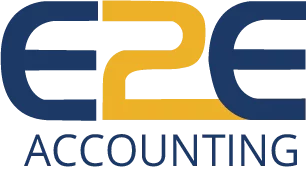Bookkeeping is an essential aspect of business. Accounting records are needed for calculating a company’s obligations and its receivables, to look at its history and plan for the future. A bookkeeper’s role is to help you organize and manage your books and maintain proper and accurate financial records.
In the current economic climate, resulting in no small measure from the series of lockdowns in the USA, a bookkeeper is more important than ever, to help your business navigate the myriad rules and changes, manage compliance, assets, liabilities, and taxes without errors or miscalculation. The bookkeeper’s role is thus vital to the overall functioning of any business.
We discuss here some crucial issues for you to consider as you make this decision.
1. Focus on your Core Business
Bookkeepers ensure that financial records are correct and up-to-date. This allows you to focus on your business’s core activities. A bookkeeper can help you grow your business faster by providing reports that analyze business and growth trends, especially in today’s COVID19 affected economy. Cash and accounts forecasts made by your bookkeeper, studied with market movements, help you plan for the future.
2. Profitability Analysis
Bookkeepers track your income and expenditure and inform you about where you should or can cut costs and where you must increase your revenue to ensure you have sufficient funds available for your business. Complete access to the financial records of your business allows the bookkeeper to monitor profits or losses at all stages. As the economy recovers slowly, after several waves of coronavirus, the regular updates you receive from your bookkeeper about your assets and liabilities enable smart changes in real-time. Hiring a bookkeeper brings you a great return on your investment
3. Finance management
The company’s efficiency depends highly on the precision of bookkeeping. Business owners may fail to observe how they’re spending their money, but a bookkeeper’s job is to point out where it is going and whether or not it will generate profit. An efficient bookkeeping service provides correct and accurate data in real-time helping SMEs to grow and flourish. A third-party service provider can help you manage your finances better and eliminate unnecessary expenses.
4. Manage compliances
Your bookkeeper ensures that the business’s financial records are kept in order, accurate and updated as per the government’s rules and regulations. They alert you to changes in the regulations and update the records accordingly. They ensure that all tax compliances are timely, filing returns and reminding you to pay the liabilities.
5. Grants and schemes
SMEs have constantly been on the lookout over the past year for financial support in a halting economy. Various grants, loans and Government schemes are keeping many businesses afloat. Your bookkeeper would have helped you with the eligibility criteria, the documentation and the numbers to apply for the relevant grants, loans and/or schemes. They would have, and continue to, help you manage monthly compliance and eventual repayment where necessary. They calculate future cash flows to suggest the loan repayment best suited to your business.
Conclusion
Running a business in USA means you will have to be extremely competitive and bookkeepers will help you in maintaining and increasing your efficiency. Also, getting experienced bookkeepers is not an easy job but if you get hold of professional service partner than you will get access to experienced bookkeepers streamlining your bookkeeping process.
For experienced bookkeepers, you must connect with E2E Accounting which has built a team of bookkeepers serving multiple businesses in USA. For more information on our bookkeeping services or to send questions write it down on our contact form and our executive will get in touch with you.



